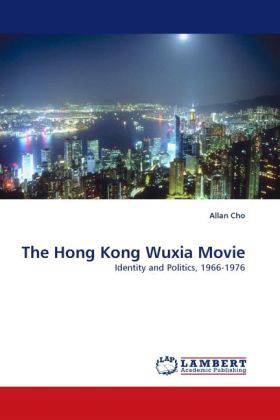
- Afhalen na 1 uur in een winkel met voorraad
- Gratis thuislevering in België vanaf € 30
- Ruim aanbod met 7 miljoen producten
- Afhalen na 1 uur in een winkel met voorraad
- Gratis thuislevering in België vanaf € 30
- Ruim aanbod met 7 miljoen producten
Zoeken
€ 48,45
+ 96 punten
Omschrijving
In examining the production and reception of the wuxia movie in Hong Kong during the 1960s and 1970s, this book argues that the popularity of the genre was more than just entertainment value. Its warm reception by audiences not only in Hong Kong, but in large parts of the Chinese diaspora, was because the wuxia pian - known as the martial arts movie to the West - had belonged to a long historical literary and political culture that traces back to China's imperial past. Far from a novelty, the wuxia pian was a modernized visual medium with themes and characters that were already familiar to people who read and watched plays, operas, and wuxia novels. Moreover, wuxia filmmakers were not mere imitators of the latest cinematic advances from Hollywood, but instead were innovators interested in recreating the splendor of the past through cinema, drawing inspiration from traditional stories, music, and fighting techniques while experimenting with western film technology and theory. Through the looking glass of popular culture, this book explores what defined Chineseness in one of the most chaotic and fractious periods of Chinese history.
Specificaties
Betrokkenen
- Auteur(s):
- Uitgeverij:
Inhoud
- Aantal bladzijden:
- 60
- Taal:
- Engels
Eigenschappen
- Productcode (EAN):
- 9783838332789
- Uitvoering:
- Paperback
- Afmetingen:
- 150 mm x 220 mm
- Gewicht:
- 97 g

Alleen bij Standaard Boekhandel
+ 96 punten op je klantenkaart van Standaard Boekhandel
Beoordelingen
We publiceren alleen reviews die voldoen aan de voorwaarden voor reviews. Bekijk onze voorwaarden voor reviews.











